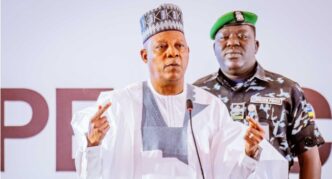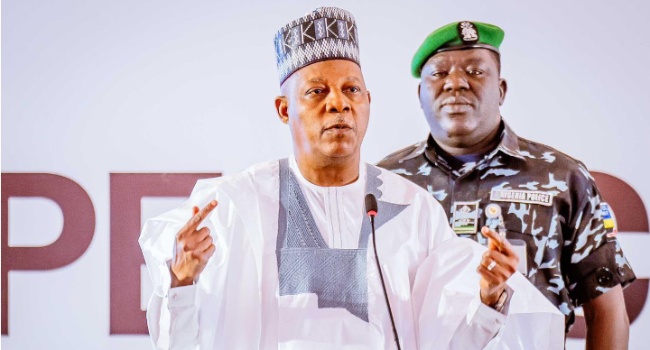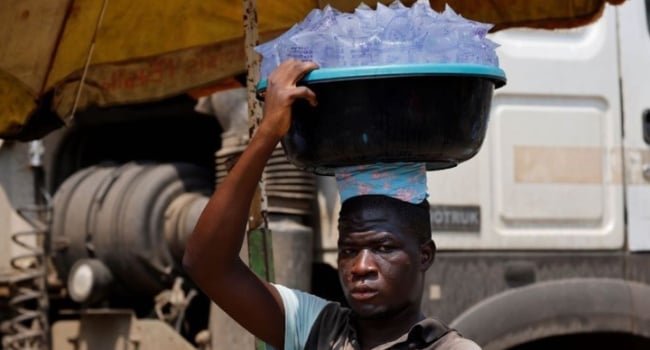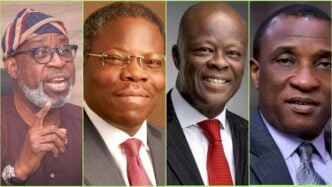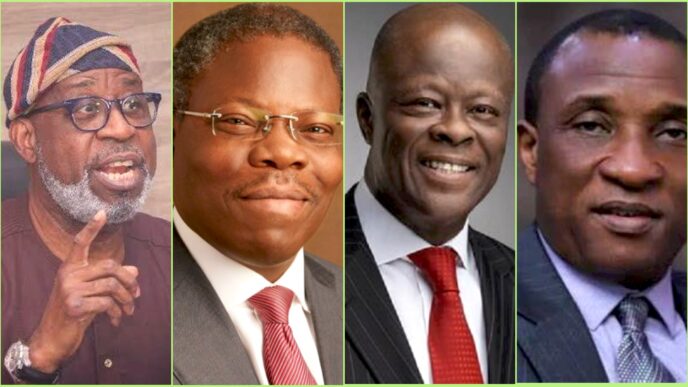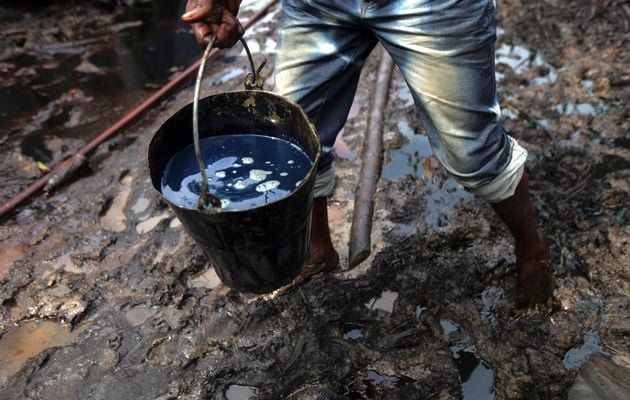Not many Nigerians in the diaspora can boast of the fortune Akin Elekolusi wielded last month. Elekolusi was victorious in his first try at politics, becoming councillor of Stevenage, UK, under the auspices of the increasingly popular Labour Party.
Elekolusi, who was the only Black African that contested in the election, became part of a larger success story when his party swooped victory for the first time in the council in nearly two decades.
In this interview with TheCable’s CLAIRE MOM, Elekolusi talks about the strength he found in the community, the immigration policies in the country, his predictions for the upcoming UK general elections, and how he hopes to give minorities in his local council a voice.
TheCable: Congratulations on your victory as a councillor. What drove your decision to pursue a political role in the UK and why did you specifically contest the local council election?
Advertisement
Elekolusi: A lot of things informed this decision. My political inclination has always been towards the Labour Party to start with. I have always been a supporter for as long as I can remember, even before the Tony Blair era.
Over the years, in my various communal roles where I live, I have always been involved in helping people out with so many areas of concerns that they may have. So, this has been something that has always been asked of me, as far back as 15 years ago, whether I wanted to contest as a councillor but I kept putting it off. Eventually, I was asked the question again, almost a year and a half ago, and then I decided ‘Why not’?
I passionately feel that as an African, a British-African, we are not well represented at various levels of governance in the UK and that drove my will to be part of this process. I felt that the community where I live can be at the seat where decisions are made, so that we can actually have a voice and an opinion. But driving down to my own passion as well is to champion the cause of the ethnic minority community in Stevenage where I live. Quite frankly, I believe this is all God ordained. Any achievement I have through this process, I am not going to take it lightly because it is a huge responsibility that has been placed on me now. I actually represent the whole community as against just a microcosm.
Advertisement
Going back to what you were saying, that has always driven me as a person, I have always been people oriented. I have always felt like politicians should be servant leaders and I am trying to make an example of servant leadership and make impactful decisions on the population of Stevenage going forward. I was overwhelmingly shocked, actually pleasantly shocked, when I was announced as one of the winners in my ward because it came as a pleasant surprise. This is my first time at the whole thing and we just thank God. It was a David and Goliath situation and I think like David, I kind of conquered the Goliath that was ahead of me and that is how you know with God all things are possible.
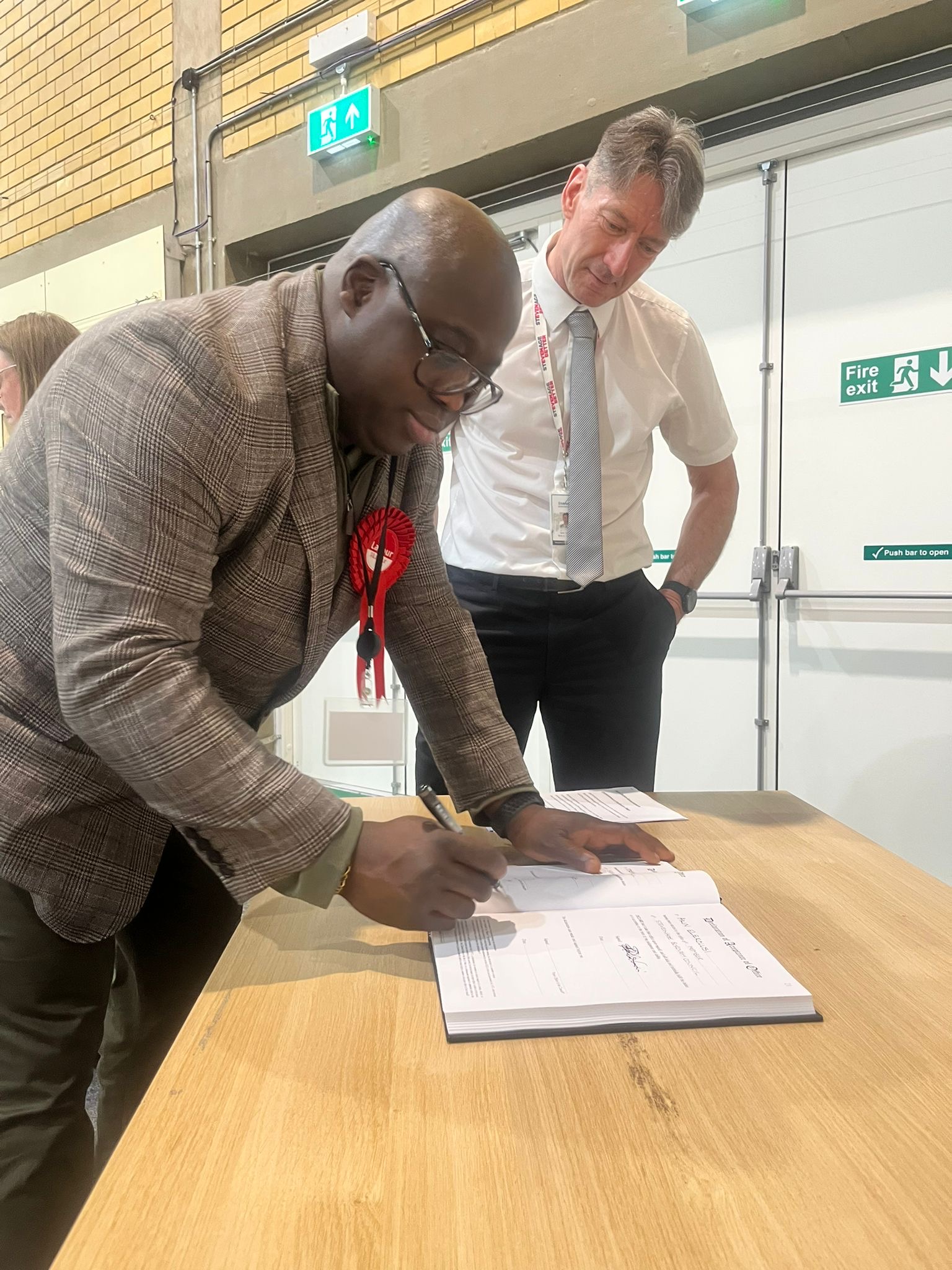
TheCable: You are emphatic on how you have always been firmly rooted in the Labour Party. Considering your background as a black candidate representing this party, were you confident in your ability to secure victory, especially given the racial demography and political landscape of the area? I understand Stevenage, before your win, was a major conservative area.
Elekolusi: I would not say I was confident and at the same time I would not say I was self-defeatist. I just went out there and we pitched our course to the local residents in that area. We actually canvassed passionately in that area for weeks and a lot of volunteers joined us from all over the country. I thank those volunteers that turned up to campaign on our behalf. They bought their own plane tickets and drove down to Stevenage just to help out and that is the beauty of part of the political process that I experienced here. I am very thankful to all those volunteers that helped us in this process because we were sent to a Tory ward, a conservative ward where Labour had not won for 14 years, and all three Labour candidates got in, including myself. I was the only Black African in the whole of Stevenage that contested for 39 seats within the council here.
There is a bit of a backstory to this. The reason why I was not defeatist and I was not supremely confident was one out of two things. When we moved to Stevenage about 23 years ago, I felt at peace with the decision because the residents here welcomed us with both arms. The Black population there was very minute. Right now, it is not as if it is that massive. I think from my latest demographic statistics, we are only three percent of the population, the ethnic minority community, and that includes the Asians and Blacks of Stevenage. So, it is still quite low. You can imagine back then 23 years ago but they made us feel welcome from day one. My children were both born in Stevenage and they have never suffered any ill racial effects.
Advertisement
So leading up to that, that is where the bit of the backstory was (chuckles). I think I have always felt at peace being in Stevenage and I just felt I could go out there and contest. There was not a thing holding me back. I did not have any ill feelings. I did not have any negative thoughts. I just thought I was going to put myself out there and let God take control of the rest. It was a surreal moment when my name was announced and I was informed I was elected. It was like an out of body experience, you know, like a Hollywood film moment. The disbelief on my face made everyone realise that I was not expecting it as well. So, I think sometimes, it is better when you are thinking you are not going to be defeated but at the same time you are not too arrogant to think you are going to win.
TheCable: That is quite an inspiring story. You did mention that this is your first time vying for a political position. Were there any pivotal moments or experiences during your campaign that influenced your perspective or approach towards governance?
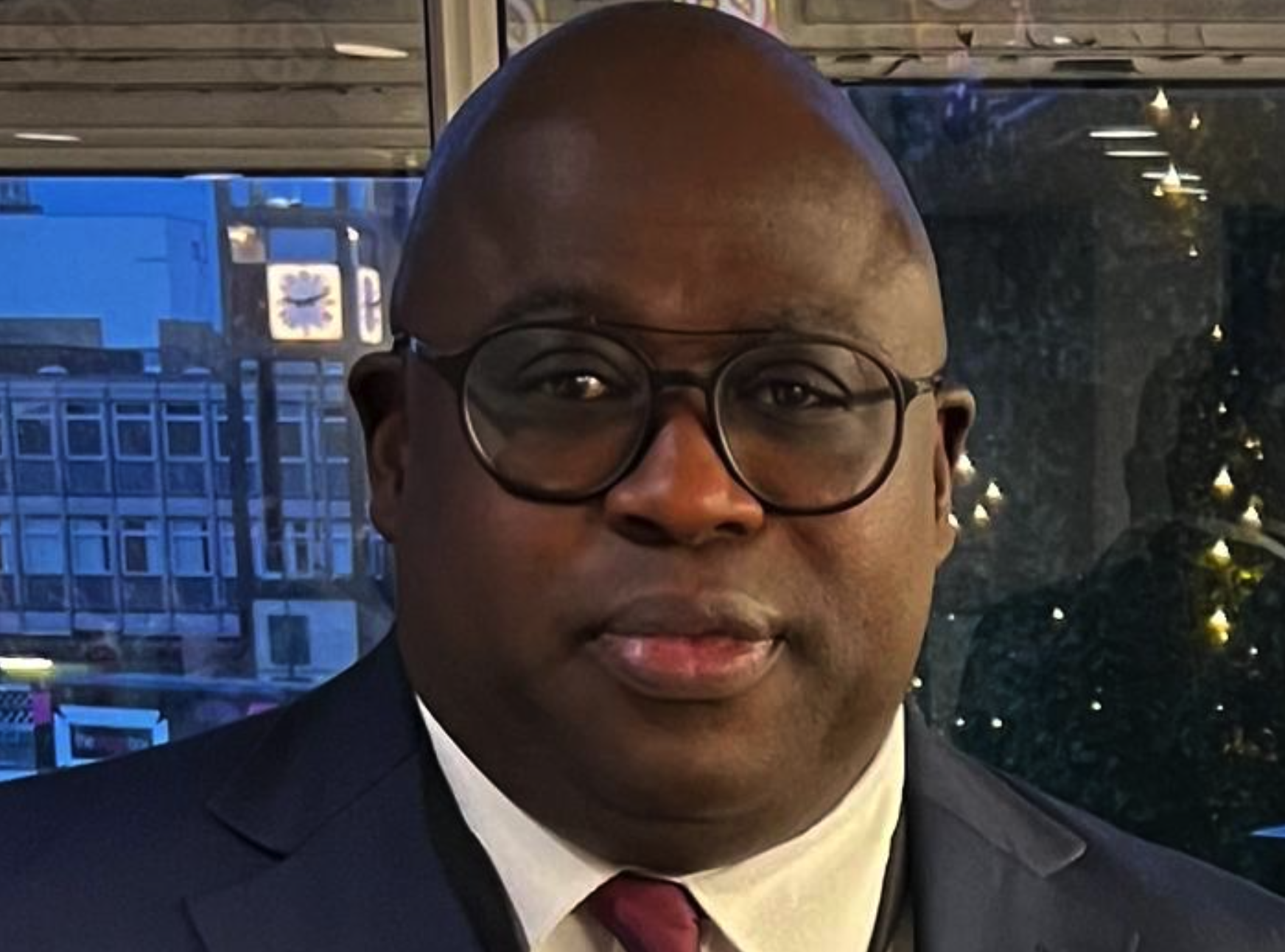
Elekolusi: Yes, off the top of my head, there were quite a few moments. I remember when we started canvassing for votes and campaigning around the ward. I encountered some situations with some of the residents there and it struck me that this is why I need to be in the position of governance — to actually help people. A lot of them have a lot of social issues, problems with housing, social nuisance, and that struck a chord with me because people should not be made to exist like that, especially in such a rich country as the United Kingdom. No one can physically solve everyone’s problems but at least, I intend to make the most widely impactful decisions that will positively affect people’s lives going forward.
I intend to reach out to some of those people that actually struck this chord within me. I still remember them, now that I have been duly elected to follow up on their cases. It is amazing how people get lost in the system. It was no fault of the incumbent people that were there. I am not blaming anybody.
Advertisement
TheCable: Let me take you back to your roots a little. Drawing from your experiences in both Nigeria and the UK, how would you characterise the differences in political systems and voter attitudes between the two countries?
Elekolusi: With the political systems, it is a huge difference. What we practise in Nigeria a presidential system of government, which we adopted since the 90s or the 80s under Shagari. Now, I grew up in that system in Nigeria and I remember in the 60s, we practised a near system to the cabinet system of government that the British have. But we now practise an American presidential system. This is so different from the UK system.
Advertisement
I have lived here for about 33 years now and have found out that the local councils actually play a very important role in the daily lives of people. A lot of the decisions made in the House of Commons, which is actually where the MPs sit, affect people nationally. To implement those decisions, you actually need the local councils. There is no state government in between. It comes from that national level to the local councils to actually implement those policies of governance. This is where the role of councillors are very important because we are now those people that make those decisions within the council that will impact directly on the residents.
Whereas in Nigeria, you have so many layers of government; you have the federal government and then you have the states and then you have the local governments.
Advertisement
One thing I have noticed is that development is faster here in terms of getting things done because there are not so many layers of bureaucracy. The presidential system of government (in Nigeria) is layered bureaucratically and there are so many hoops you have to go through whereas with the cabinet system in the UK, it is totally different. Local grassroots development and politics are taken seriously. A lot of the MPs actually come from backgrounds, from being councillors in local governments before they graduate to becoming MPs of the districts that they come from. I am seeing this for the first time and I am glad to be part of that process.
The other thing we need to learn is the political attitudes of the voters here; it is totally different. They have embarked on the education of democracy and the values of democracy so much so that I did not feel threatened as a Black man walking up to a White person to tell him that I represent the Labour Party and asking if he going to vote for the Labour Party? If not, he is going to politely tell you. There is no animosity. Some will even tell you that they are not interested or they do not vote at all. It is a disparity of views and ideological beliefs that people have but it is born more out of years of social education through television and information dissemination.
Advertisement
There is so much of it that goes on here to sensitise the population of what is going to happen at the local election or the general election. The parties come out with all the ideological principles and policies they want to implement; so you find out that everyone engages with each other. Everything is peaceful; succession in governance is smooth; nobody is really vilifying anybody. Those are the wide range of things that I noticed over the years as a voter; but now as a politician that has actually gone out there to canvass for votes and knock on people’s doors, I actually realised that it is so heartwarming the way politics is practised in some of these Western democracies.
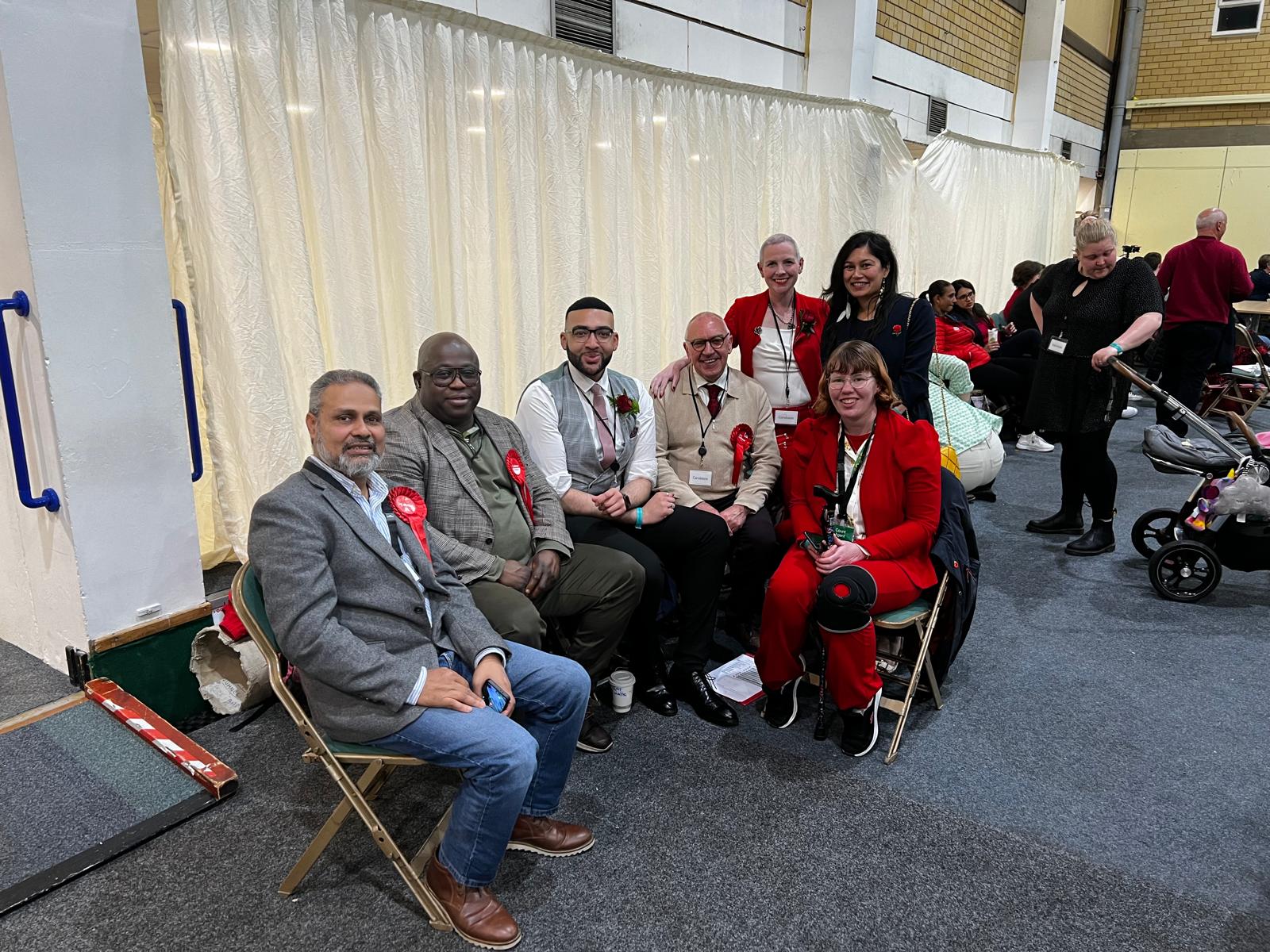
TheCable: Speaking about the voters there and their political beliefs, with the upcoming general election looming, there is speculation about the Labour Party potentially surpassing Prime Minister Rishi Sunak’s party. If you look at the recent polls, the Labour Party has been sweeping votes. What do you believe are the key factors driving this predicted major shift in power?
Elekolusi: Trouble has been brewing for the Tories since as far as maybe David Cameron. I could sense there was a paradigm shift after he took us into Brexit. Now, it was a big mistake looking back because it created a canyon in the country in terms of huge division in people. That was when I first saw how bitter people became in the UK; it was not so much of an election but about the destiny of the country. The country was divided into two along the lines of the remainers and the Brexiters. We all thought the remainers were actually going to hold sway and the country would stay in the EU but sadly things happened.
All of a sudden, there was a surge because people in the north voted. Some people voted out of protest. And yes, there were liberal supporters that should have voted ‘Remain’. They voted for Brexit, and that swung it in Brexit’s favour just by about two percent. Now, that decision has impacted on the UK going forward because we are no longer in the EU, which is the biggest trading zone in the world of over 500 million people. That impacts heavily on the country. Britain is a lot poorer by many billions now ever since Brexit which everybody knew would happen but people were not prepared to listen. People are feeling more social pressures.
COVID came in and Boris did his own drama where he lied to people. He was not obeying the laws that they were passing. They wasted a lot of money. There were so many issues that did not make the Tory party look good. Then comes Liz Truss. She passed the budget that literally just finally broke the camel’s back. It was the last straw. Her budget was unbelievably bad because she was trying to do too many things too soon. Of course, the city did not like what she was talking about. Interest rates went up; people were paying more for mortgages; people were cramped economically. We were just coming out of COVID; the cost of living got worse; cost of energy went through the roof and a lot of problems started exacerbating.
So, by the time Sunak came in, he literally had to put out fires here and there. It does not help that some of his own policies have not really worked, like the Rwandan policy. He has been trying to force it and has wasted so much money on it. The NHS is in trouble right now; eight million people are on the waiting list. That is the thing the population of Britain do not want to hear. It is a scandal. I mean, eight million people waiting for operations, cancer patients; it is just so crazy.
That is why I took it back to David Cameron; so it is not just solely Rishi Sunak’s fault. It is a combination of all those guys put together and that is why I predict easily the Tories are going to be in opposition for the foreseeable future because Labour is bound to win this upcoming general election.
The Tories would have to be in opposition for at least two parliaments after a Labour win so it is going to be quite a while before we hear the Tories back in government. I actually think it is time for change. Keir Starmer will make a fantastic prime minister.
TheCable: One of the policies that has particularly stirred a lot of debate among citizens in the UK is immigration, particularly from the substantial Nigerian immigration population. If you look at the data from the last few years, a heavy chunk of it are Nigerians. What are your thoughts on the strategies proposed by the prime minister’s administration?
Elekolusi: Every country has a right to protect their immigration law. A lot of countries are just more paranoid than others. I think the Tory party went to an extreme on this issue because immigration is actually very good for countries economically. It benefits the country culturally.
Britain is actually richer today culturally because of the various communities that have migrated to Britain in the last 30-40 years. You would never have thought companies like Nando’s (a South African fast food chain) would be a huge business now in the UK, the widely eaten Indian cuisines, Chinese restaurants — these things bring money into the economy.
Coming to the Nigerian community, the Nigerian community has been a huge blessing to the UK. Look at the NHS for instance, the plethora of Nigerian doctors in different areas of medicine is unbelievable. They have done very well and they represented Nigeria very well — that is the beauty of immigration. Imagine if all those guys were not in this country. Obviously, some of them have not been that good but we all know they do not represent the majority.
So, I just think a lot of exaggerations have been put into it (immigration policies) in terms of putting restrictions on numbers. I am not saying they should open the door and all that, but if we actually have controlled immigration like they are now saying, it is still going to benefit the country one way or the other.
I was seeing a statistic recently. Apparently, in London, we have over 400 Nigerian restaurants now and I was shocked because I did not even know it is up to 400. Imagine all those 400 restaurants paying their taxes into the UK treasury, not to talk of the others because London is so cosmopolitan in nature. The benefits actually outweigh the disadvantages. People just think these people are coming — they are hard workers. They are coming to contribute to the economic development of the country. That is why I was actually a remainer during the Brexit thing, because I just felt I am not going to vote along the lines of not letting people come into the UK. No, that is not what life is about. We cannot look inwards. Every country is looking outwards. It is a globalised world at the moment. Everyone has to trade with one another on the world stage to progress.
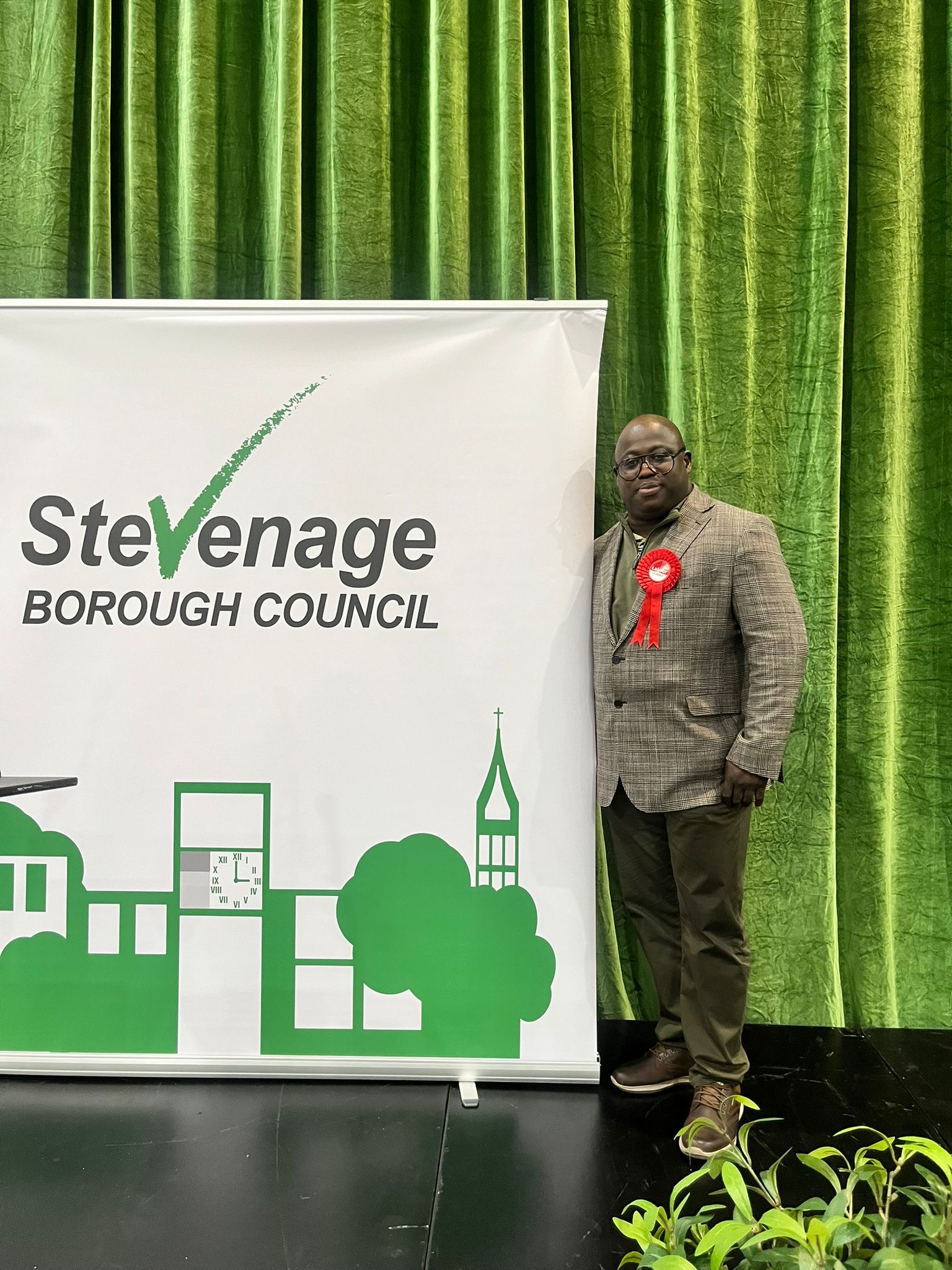
TheCable: You have given a lot of insight into your political journey in the UK. What is next for you? What specific changes do you aspire to bring about going forward and how do you envision your political journey evolving in the future?
Elekolusi: I am very passionate about certain areas within politics. Social housing is one. Recently, we have been having more property development for first time buyers of houses and all that. A lot of people cannot afford to buy these houses, so they obviously have to access housing through the social housing ladder, so to speak, through the local councils in the UK. I am very passionate about getting people into proper housing and very affordable housing.
Two is to address the youth unemployment in the area. In Stevenage, I am very passionate about youth achieving their potential and not wasting their lives because you only have one chance. Sadly, I have known kids along the way who I tried to mentor locally but did not work out very well. One died of a drug overdose and it was very painful. Equally true, I am always very glad about the ones that did so well. They become responsible young men. They are working; they are married; they have children today and occasionally I bump into them in town. We talk. So, that is an area that I want to get engaged with and make sure that we make a positive impact. I intend to engage with quite a few youth bodies in the town and maybe companies that have that corporate social responsibility embedded in their ethos and take this forward. There is a lot of work to be done.
The third area could be the planning issues around town, making sure that we actually plan the town properly especially when it comes to this social housing. You know it should not be more about building fancy houses for people that can buy them but to be more mindful of that demography that we need to take care of. I believe in a society where the ladder is not removed from the people. I think this is where I am a passionate Labour Party supporter.
I have always thought about the masses. My politics has always been people driven. I remember the saying that ‘a millionaire amongst very poor people is equally a poor person’ because what is the use of your wealth if it does not impact on people? When you extrapolate that and take that to the level of the country, a country’s wealth needs to be reflected on its people. Wherever this journey takes me politically, I am ready because I would love to even contribute at higher levels than this in future as well.

